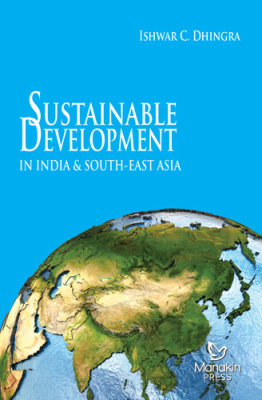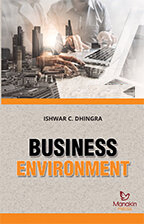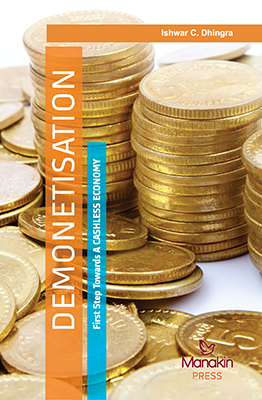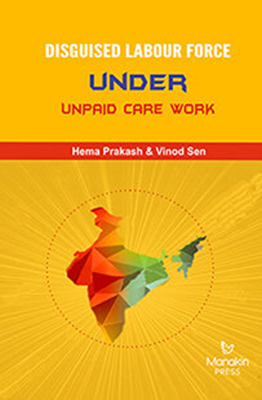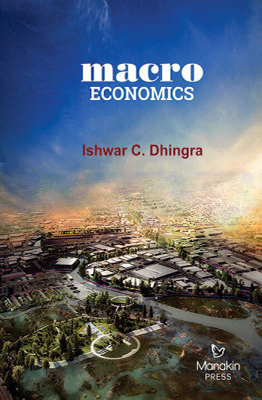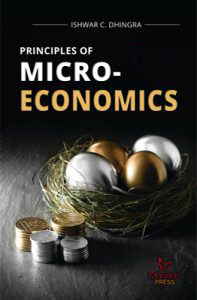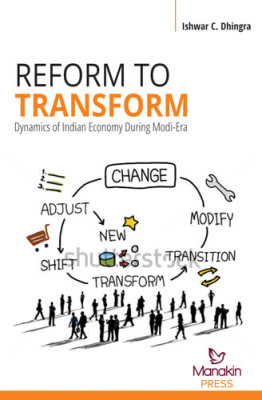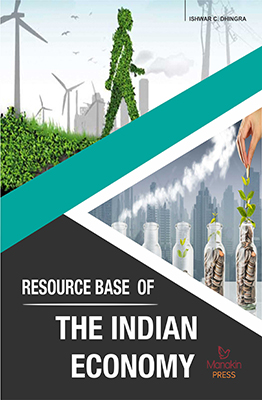Sustainable Development in India and South-East Asia
₹1,295.00
Ishwar C Dhingra | Category: Economics
Binding Type: Hard Binding
Book Details
ISBN: 9789384370473
YOP: 2017
Pages: 510
Order also on
Sustainability in an organization or enterprise means small or big modifications or reorientation, Information Technology is not a big part of this problem as it is estimated to contribute only a very small fraction of global carbon emissions. The solution to the growing burden of carbon emission lies with the IT and technology innovation only as continued advancements in processes make businesses lean and smart.
Information Technology, Sustainability & Enterprise an Empirical Study is an attempt which delves into various aspects of Enterprise like ERP, IT, Software Quality Analysis, Innovation Capacity, harnessing natural renewable resources to make businesses sustainable, Impact of Employee behavior on an Enterprise, Green Banking and Use of IT to study the impact of religious tourism on biological and ecological hotspots. It also has a study which details the positive impacts of revolution in IT and Communication Technology on Indian Postal Service.
As organizations become paperless and more technology intense the impact they have on environment around them becomes more benign day by day. An example of this is how the global revolution in the production of photovoltaic cells and continued downtrend in their prices has brought the price of a Solar Power plant less than a thermal Power Plant in India and the results have been unbelievable
and everyday sunshine states like Tamilnadu, Rajasthan see a new Solar Power plant being set up, and incoming few years India is expected to become a pioneer in Sustainable Electricity Production and usage.
In addition to datacentre optimization and other operative concerns such as teleworking, businesses are now leveraging IT competences to expedite sustainability originalities across the enterprise in new areas, including fleet management, paperless Invoicing, and building and facility management. Challenges which at times are quite daunting are initial costs, and sometimes there is quite a lengthy period before companies see a return on investment, and the need to keep up with fast-moving knowledge know-how and expertise continues need to evolve and to re-educate staffers. As IT continues to evolve as a key strategic enabler across the enterprise, many establishments comprehend the need to think more holistically about how IT can support enterprise-wide corporate sustainability efforts. This book aims to recognize how those efforts are being practiced in numerous business settings and to recognize best practices for other enterprises to follow. Of course, no corporate initiative is easy. Sustainability is expensive and requires collaboration between many different areas of the business. Perceptible success does not happen overnight, and convincing employees to change old habits requires a commitment from the top levels of the establishment to provide leadership, governance and transparency. The multidisciplinary approach the book uses is going to be appreciated by students, academicians and researchers in Information Technology, Management, sustainability experts and corporates etc.
1. India and South East Asia
2. Economic Development: Concept and Measurement
3. Basic Profile of States in South-East Asia
4. Growth Strategy of South-East Asia
5. Inclusive Growth and Human Rights in South-East Asia
6. Resource Base and Growth Profile of India
7. Sustainable Development
8. Growth Experience of India and South-East Asia: A Temporal Comparison
9. Lessons in Development and Medium-Term Prospects for the Region
Sustainability in an organization or enterprise means small or big modifications or reorientation, Information Technology is not a big part of this problem as it is estimated to contribute only a very small fraction of global carbon emissions. The solution to the growing burden of carbon emission lies with the IT and technology innovation only as continued advancements in processes make businesses lean and smart.
Information Technology, Sustainability & Enterprise an Empirical Study is an attempt which delves into various aspects of Enterprise like ERP, IT, Software Quality Analysis, Innovation Capacity, harnessing natural renewable resources to make businesses sustainable, Impact of Employee behavior on an Enterprise, Green Banking and Use of IT to study the impact of religious tourism on biological and ecological hotspots. It also has a study which details the positive impacts of revolution in IT and Communication Technology on Indian Postal Service.
As organizations become paperless and more technology intense the impact they have on environment around them becomes more benign day by day. An example of this is how the global revolution in the production of photovoltaic cells and continued downtrend in their prices has brought the price of a Solar Power plant less than a thermal Power Plant in India and the results have been unbelievable
and everyday sunshine states like Tamilnadu, Rajasthan see a new Solar Power plant being set up, and incoming few years India is expected to become a pioneer in Sustainable Electricity Production and usage.
In addition to datacentre optimization and other operative concerns such as teleworking, businesses are now leveraging IT competences to expedite sustainability originalities across the enterprise in new areas, including fleet management, paperless Invoicing, and building and facility management. Challenges which at times are quite daunting are initial costs, and sometimes there is quite a lengthy period before companies see a return on investment, and the need to keep up with fast-moving knowledge know-how and expertise continues need to evolve and to re-educate staffers. As IT continues to evolve as a key strategic enabler across the enterprise, many establishments comprehend the need to think more holistically about how IT can support enterprise-wide corporate sustainability efforts. This book aims to recognize how those efforts are being practiced in numerous business settings and to recognize best practices for other enterprises to follow. Of course, no corporate initiative is easy. Sustainability is expensive and requires collaboration between many different areas of the business. Perceptible success does not happen overnight, and convincing employees to change old habits requires a commitment from the top levels of the establishment to provide leadership, governance and transparency. The multidisciplinary approach the book uses is going to be appreciated by students, academicians and researchers in Information Technology, Management, sustainability experts and corporates etc.
1. India and South East Asia
2. Economic Development: Concept and Measurement
3. Basic Profile of States in South-East Asia
4. Growth Strategy of South-East Asia
5. Inclusive Growth and Human Rights in South-East Asia
6. Resource Base and Growth Profile of India
7. Sustainable Development
8. Growth Experience of India and South-East Asia: A Temporal Comparison
9. Lessons in Development and Medium-Term Prospects for the Region
| Weight | 0.921 kg |
|---|---|
| Dimensions | 24 × 16.5 × 3.2 cm |
| yop |
2017 |
| subject-category |
Economics |
| isbn |
9789384370473 |

